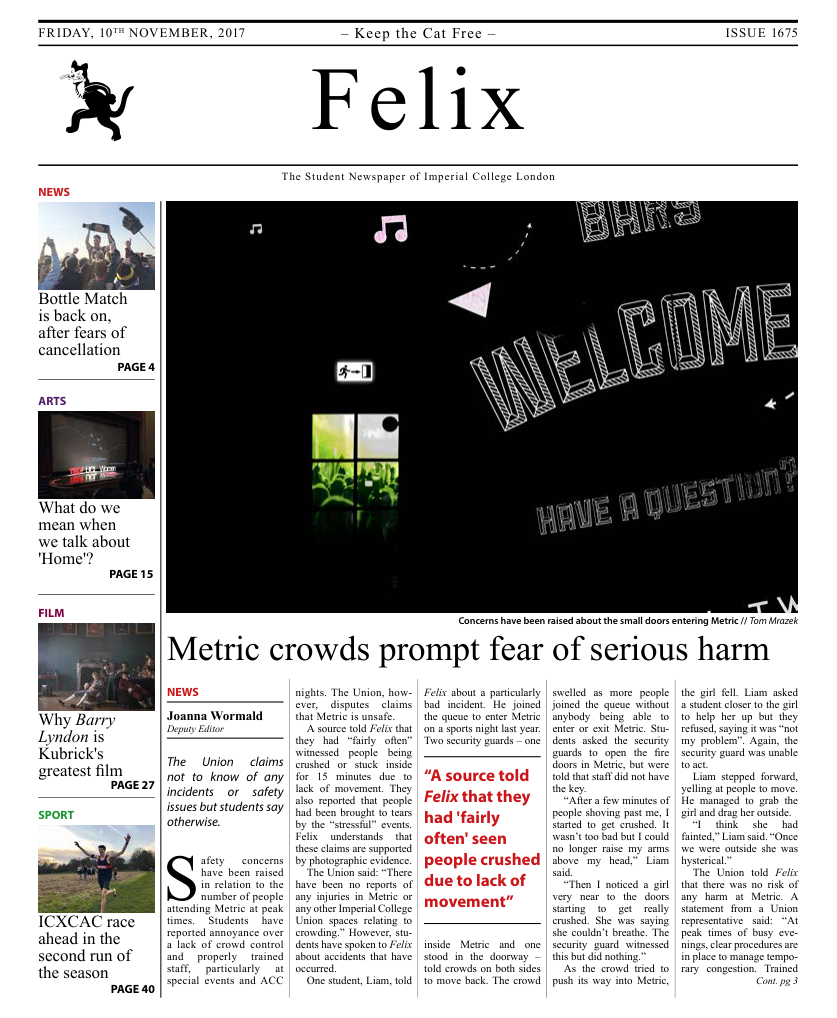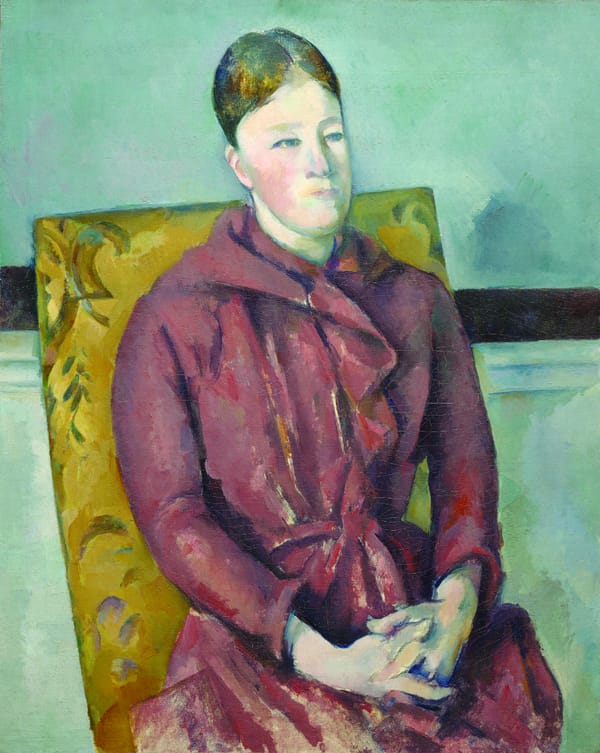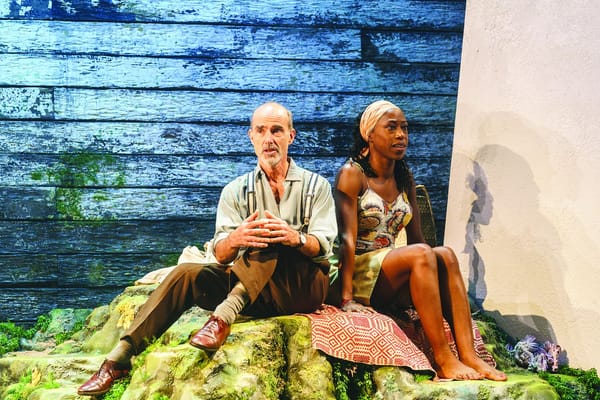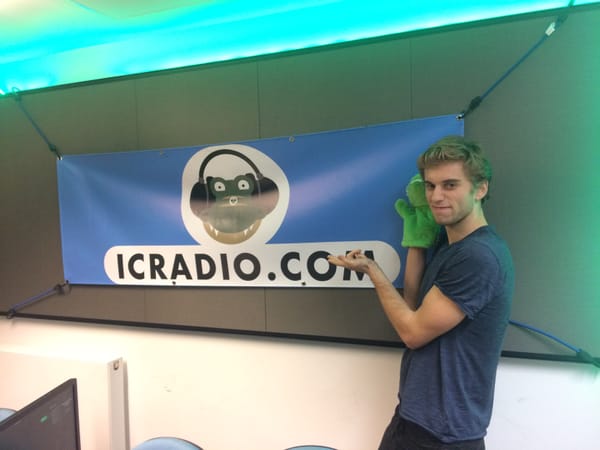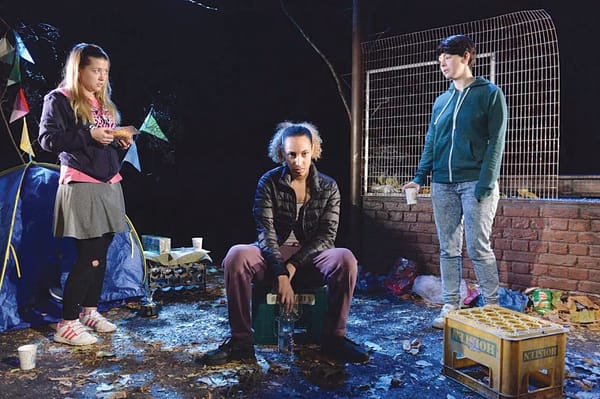Home Is the Place…
Yas! – Kweens take the stage as part of TEDxUCL Women 2017.

If weeks had themes, the theme of last week would’ve been empowerment. On Wednesday I ventured down into Imperial’s Enterprise Labs as part of the WE Innovate scheme and met dozens of inspiring, amazingly ambitious women just at the beginning of their careers desperate to make a difference in the world. On Sunday, slightly further afield, in the People’s Palace – a part of Queen Mary’s – I met an equally amazing group of women assembled for the TedxUCL Women lineup.
The theme for this year, the fourth iteration of the TEDxUCL Women format was ‘home’ - a subject that each of the speakers explored with a different lens. For Dr Olesya Myakonkaya, ‘home’ meant looking beyond the reaches of our planet and considering how the future of human colonisation on Mars (an event she considers inevitable) could go beyond technology for technology’s sake. Similar themes of humanist development were explored later by Shelley Sacks. Sacks, a ‘social sculptor’, spoke movingly of her childhood in apartheid South Africa, and the rift the racial division created in her early life, even situations as banal as dinner time. Using the example of their family kitchen in which these tensions would boil over, Sacks spoke on the theme of imagining a future where ingrained biases are challenged and overcome.
Halima Hussain explained how the transformative experience of participating in a mixed-gender prayer behind a female imam broke down her preconceptions what a Muslim prayer could look like. Following this, Hussain, a theologian with an interest in feminist readings of the Quran, founded the Inclusive Mosque Initiative (IMI) with Dervla Shannahan and Tamsila Tauqir. Hussain described IMI as a place where inclusion, regardless of gender, sexual orientation, or disability is at the forefront of religious practice. In one of the most powerful moments of the day, Hussain decried the media’s propensity to pit IMI against the more traditional interpretations of Islam and extended a hand of solidarity to her Muslim sisters who choose not embrace IMI’s ideals - “women who do not want to pray behind women imams are not in need of reform... plenty of strong women and feminism exists in the spaces of our parents”.
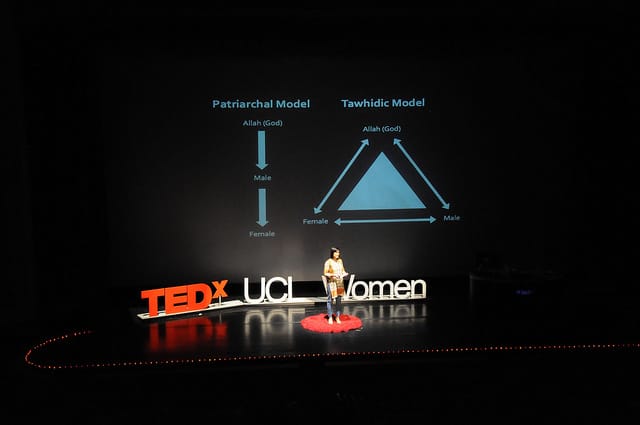
Hussain’s quiet revolution borne out of love for a community was echoed in Subhadra Das’ witty, passionate talk. Das, a historian and curator of the Francis Galton collection at the UCL Pathology and Science Collections, spoke about exposing the racist history of UCL – an institution essential to the establishment of eugenics as an accepted science in Britain in the 19th century, and a place Das considers home after spending the vast majority of her adult life there, first as a student, then as an educator. Quoting Robert Frost she said “I used to consider home as a place they had to take you in... (but now) I like to say home is the place, when I got there, I tried to make better”.
TED talks as a format are so popular and so engaging because it is a chance to gain a primer into a complex subject within a few minutes, the brevity proved a curse as well as a blessing on Sunday however. I could’ve easily listened to another hour of the playwright Jules Orco who spoke with verve about negotiating the London arts scene as a Filipino woman and the importance of recognising that mere representation – as difficult as it is to achieve – is useless without real and actual power: there’s no point having a seat at the table if you cannot the shape the discussion. Where Orco shone, the format completely obscured the brilliance of other speakers – Ashleigh Boyd who was presenting her own stem cell research for treatment of diabetes had barely gotten past explaining what diabetes was and its devastating impact before her time was up.
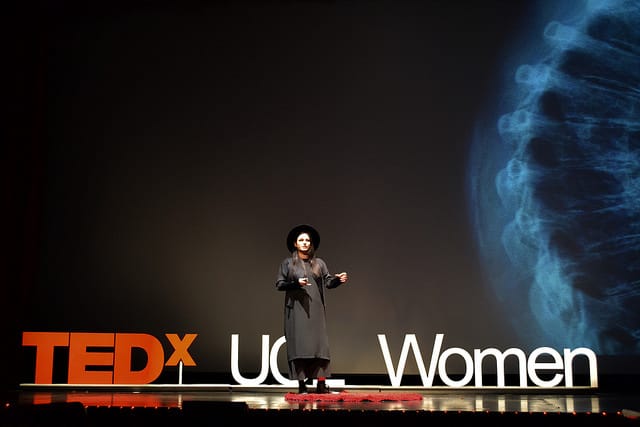
Home. The concept varies for everyone, on the post-it notes where delegates were encouraged to write their own definition, the descriptions varied from the single word “doggies :)” to “the place in which your existence need not be justified”. On a day where the talks were truly intersectional, centered just as much on race, religion, and economics as on feminism, where the speakers spoke passionately, movingly about how their experiences has shaped their worldview, I kept thinking of a line from Little Gidding: “the end of all our exploring / Will be to arrive where we started / And know the place for the first time”. Home, so inextricably linked to our childhood seemed to be a thing always changing: albeit with a constant, “home,” said Grace Victory during her spoken word performance, gesturing towards herself “is this – home is me”.
In giving women from all different fields and viewpoints a platform, the TEDxUCL Women team are doing something worthwhile, something essential: long may they continue.
TEDxUCL Women was on at Queen Mary's University of London last weekend. For more information, visit their website

